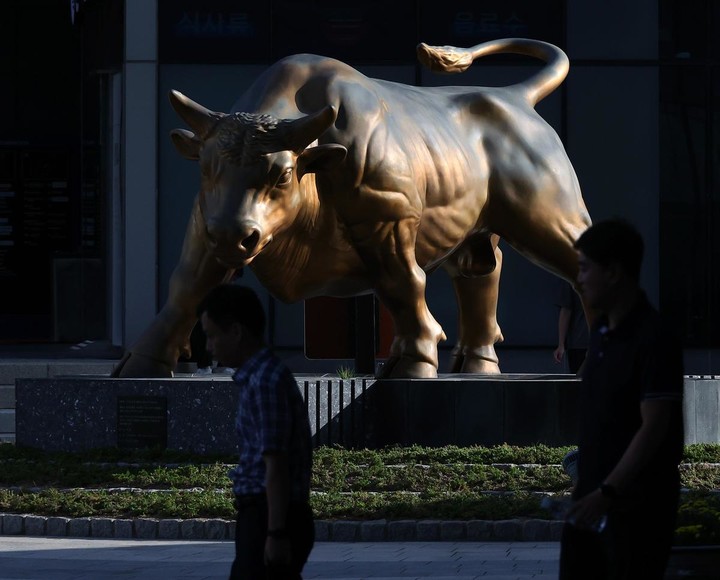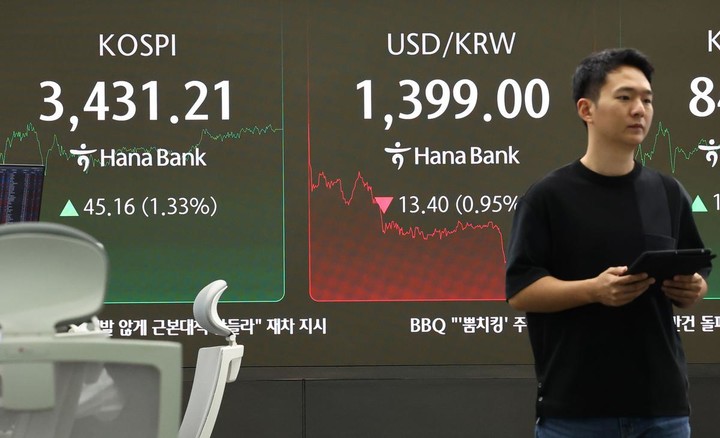Economic Uncertainty Spurs Companies to Ramp Up Bond Issuance
Most Funds Used for Operations and Debt Rollovers, Raising Concerns Over Corporate Health

South Korean companies have set a new record in corporate bond issuance, crossing the 100 trillion won mark in just three quarters amid heightened economic uncertainty. Both the volume of new bonds issued and the total outstanding corporate debt have reached all-time highs as businesses rush to secure liquidity.
According to data released by the Korea Financial Investment Association on September 29, the value of corporate bonds issued from January 1 to September 26 this year reached 105.33 trillion won. This marks the first time the 100 trillion won threshold has been surpassed within the first three quarters—a figure over 18 percent higher than the same period last year.
The upward trend is stark: annual issuance has increased from 66 trillion won in 2022, to 77 trillion won in 2023, and 89 trillion won in 2024, with this year seeing particularly pronounced growth.
With this surge, the aggregate balance of corporate bonds held by Korean businesses has ballooned to a record-high 420.62 trillion won. Net issuance—the total amount raised minus repayments—stood at 28.1 trillion won so far this year, the highest since 2019.
Industry experts forecast that the annual issuance could hit new records if rollover-driven issuance continues, particularly with 44 trillion won in bonds maturing within the next six months.

However, concerns are emerging regarding how these funds are actually being used. For example, Binggrae issued 70 billion won in unsecured public bonds this month, aiming to allocate 40 billion won for operational funding, including raw material purchases. Likewise, Lotte Chilsung Beverage issued 250 billion won in bonds to repay debt maturing early next year. Analysts note an increasing trend of using bond proceeds for refinancing and daily operations rather than new investment, suggesting companies are operating in “survival mode.”
Kim Jin-il, professor of economics at Korea University, observed, “If newly issued corporate bonds fund core industrial investments such as artificial intelligence or semiconductors, the impact on the broader economy would be positive. However, if they are used mainly for refinancing existing debt or operational purposes, it raises red flags. Over the medium to long term, rising interest costs could further constrain new investments and weaken the capacity to respond to crises.”
There are also mounting concerns that systemic risks could rebound if defaults in real estate project financing or a downturn in the petrochemical sector intensify—potentially turning the current debt structure into a “boomerang.”
Further compounding concerns, some financial instruments—such as price return swaps (PRS) and convertible preferred shares (CPS) issued by companies like SK Innovation—are classified as equity on paper but essentially function as debt. This means companies’ true debt burdens may be even higher than official figures suggest.
Suk Byung-hoon, professor of economics at Ewha Womans University, explained, “With the government strongly emphasizing corporate value enhancement, it has become harder for companies to raise capital through rights issues or IPOs. In response, amid ongoing economic uncertainty, demand for preemptive fundraising is increasingly being channeled into the public corporate bond market.”
Note “This article was translated from the original Korean version using AI assistance, and subsequently edited by a native-speaking journalist.”
Photo=Yonhap News Agency
추천 뉴스
- 1 Korean Civic Group Files Injunction to Stop Removal of 'Statue of Peace' in Berlin As the deadline approaches for the dismantling of the "Statue of Peace" in Berlin, which commemorates the victims of wartime sexual slavery, a Korean civic group based in Germany has taken legal action to avert its removal. On September 29, Korea Verband announced that it had filed an injunction wit
- 2 Former Justice Ministers and Prosecutors General File Constitutional Appeal, Calling Prosecutors' Office Abolition Unconstitutional A group of former justice ministers and prosecutors general in South Korea have jointly filed a constitutional appeal against the recently passed revision to the Government Organization Act, which aims to abolish the prosecution service. The elders of South Korea's legal community, including Kim Jon
- 3 Han River Bus Halts Operations After Just Ten Days Amid Frequent Malfunctions, Seoul Mayor Oh Se-hoon Issues Apology The Han River Bus, Korea's first eco-friendly passenger ferry service on the Han River, has suspended passenger operations just ten days after its official launch due to recurrent mechanical and electrical malfunctions. The ferry, which has attracted significant public interest, will instead shift t
- 4 TWICE’s Jihyo Stuns with Bold Crop Top and Daring Outfit Backstage Jihyo of the K-pop girl group TWICE caught the spotlight with her bold and unique sense of style.On September 29, Jihyo shared several photos on her social media account. In the photos, she layered a ripped crop top over a black bra top, pairing it with cow-patterned pants to create a striking stree
- 5 TWICE's Momo Turns Heads in Ultra-Mini Shorts, Exudes Effortless Sexiness in Casual Look Momo, a member of the group TWICE, captivated attention with her chic yet kitschy charm in her latest social media update.On the 28th, Momo took to her social media with a series of photos, along with a message that read, “Thank you, Macau (多謝Makao).”In the posted photos, Momo flaunted her stunning
- 6 Son Na-eun Exudes Elegant Charm in Ballet Practice Room, Stunning with Graceful Proportions Singer and actress Son Na-eun captivated fans with her graceful charm in a ballet practice room.On September 28, Son Na-eun posted several photos on her social media, showcasing her dedication in various ballet outfits. The images highlight her commitment to practice as she dons a harmonious blend o
- 7 Korean Employers Raise Concerns Over Unemployment Benefits Exceeding Incentives to Work The Korea Employers Federation (KEF) has voiced serious concerns that South Korea’s current unemployment benefits system is undermining jobseekers’ motivation to seek employment, with payouts in some cases surpassing what individuals can earn through work.On September 25, the KEF released a report e
- 8 Japanese Prime Minister Shigeru Ishiba to Visit Korea for Summit with President Lee in Busan Japanese Prime Minister Shigeru Ishiba will visit South Korea for a two-day trip starting September 30, attending a summit with President Lee Jae-myung in Busan.On September 26, Kang Yu-jeong, spokesperson for the Office of the President, officially announced the visit during a press briefing at the
- 9 Suicide Overtakes Cancer as Leading Cause of Death Among People in Their 40s in 2024 The number of deaths due to intentional self-harm, commonly referred to as suicide, has reached its highest point in 13 years, according to new figures released by Statistics Korea on September 25.The annual "Statistics on Causes of Death 2024" report revealed that a total of 14,872 people lost thei
- 10 Former President Yoon Seok-yeol Appears in Court on Insurrection Charges After Skipping Eleven Hearings Former President Yoon Seok-yeol appeared in court for the first time in 85 days, attending his formal trial after being additionally indicted by the special prosecutor’s team on charges of leading an insurrection.The trial, presided over by Chief Judge Baek Dae-hyun of the 35th Criminal Division at
